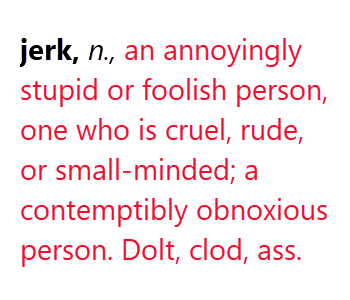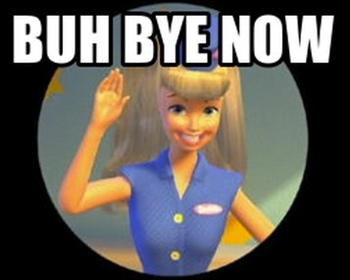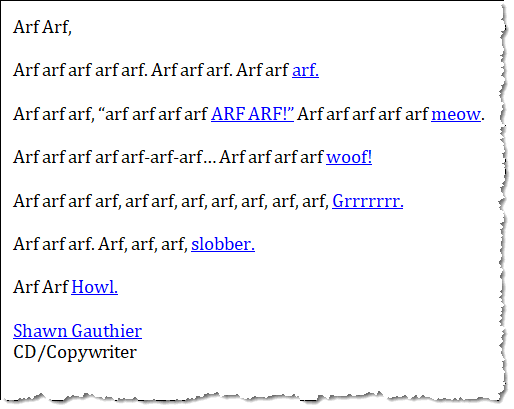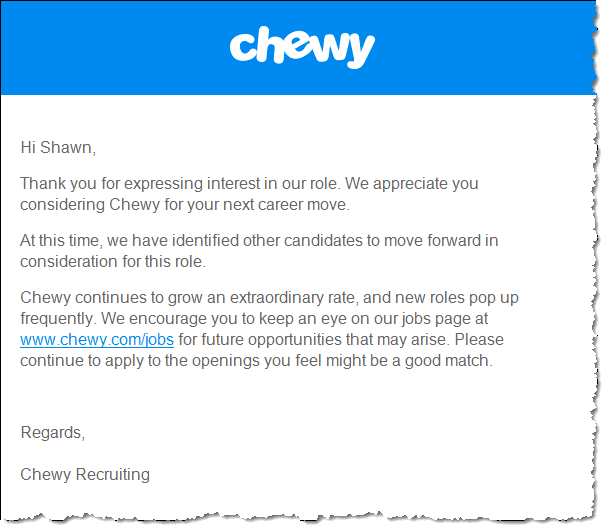In the June 25, 2019 Ask The Headhunter Newsletter a reader wants yet another look at the resume.
Question
I think you once wrote that your resume can’t defend you, because if the answer is no, you’re not there to defend yourself or explain why you still deserve an interview. I get that, but I still need to use a resume. I like how you turn a resume on its head in Resume Blasphemy, so it seems you’re not entirely opposed to resumes as long as they deliver a different kind of message. Since I’m going to use a resume anyway, got any other interesting ideas about what I could do to make it more alluring?
Nick’s Reply
Sheesh. You want to make your resume alluring? Like fast food, a resume isn’t very alluring! Why not just list your employers, jobs, titles and what you did? Keep it simple. But I think I see where you’re going, so maybe we can have some fun with this.
I’m forever telling people to skip the resume when they’re looking for a new job. And I realize some think this is kooky advice, or that it must be a headhunter’s hyperbole. Actually, my advice is intended to make you think about how to express your value in terms that make dollar signs appear in an employer’s eyes. But there’s another view of what a resume should do: make your story memorable.
The trouble with a fast-food resume
Everyone knows resumes are processed by applicant tracking systems that check your words against enormous databases. So you try to use keywords that might make those databases yield job interviews. But what you may not realize is that few jobs are actually filled that way. You’ve been suckered by Indeed’s, and LinkedIn’s, and ZipRecruiter’s marketing into feeding fast food to their algorithms.
So if you really want to experiment, try some marketing of your own. Here’s an example that might get you thinking about how a resume can be something else — if that’s what you want. Remember, we’re exploring ideas, not trying to come up with a perfect solution.
Un-do your story
My good buddy, marketing guru Mark Levy, tells about visiting a Quiznos sandwich shop in How You Tell A Brand Story Matters. Waiting in line, he read an advertising placard that told “The Quiznos Story.” This sign, of course, is Quiznos’ resume. In his article Levy rips that sign to shreds, while I’ll bet millions of other Quiznos visitors didn’t give it a second thought.
And that’s Levy’s point exactly. The sign turned the story of Quiznos into a cheesy clone of virtually any dish on the menu at Chipotle or Applebee’s, or any of a number of high-volume themed eateries that produce overly cheesy, nondescript chow. It’s all the same.
Levy writes:
“I felt duped. Here I was excited to learn what separated a brand I enjoy from the rest of the pack, and what I was fed was a surface story that… could have been trumpeted by any competitor.”
While I preach un-doing your resume to turn it into a story of how you’ll produce profit for an employer, Levy is more interested in what’s iconic and memorable about you. After all, that’s what good marketing is. I can just imagine what he thinks of resumes he receives himself. Levy’s criticism tears into all banal marketing — including the marketing that comprises your professional resume or your LinkedIn profile.
A resume that makes a dent
What can we learn from Levy’s critique? Is your resume larded with the kind of fast-food twaddle that’s on Quiznos’ sign?
“For a sub shop to say it believes in great-tasting food, consisting of freshly-sliced quality ingredients, is like a automobile manufacturer saying it believes in building cars that drive forwards and backwards. Or, a computer maker bragging about how its machines can connect to the internet.”
Is that what your resume sounds like? I’ll bet you it is. And I’ll bet, like the Quiznos sign, it’s totally forgettable.
“The story Quiznos told may be true, but it wasn’t told in a way that would make a dent in anyone’s consciousness… I’m guessing few customers have read that sign fully or remember what it said if they did.”
And that’s why you come off tasting like just another bag of fast food when you apply for a job with a resume. Oh, the keywords probably match up just fine, along with those in a million other resumes. But eventually the hiring manager who’s going to interview you has to read that thing — and you cannot tell a compelling story in your own resume if you’re using the keywords you found in some advice column about “what employers are looking for.”
 25 hungry cats
25 hungry cats
Levy says your story must include “a context… an insight… a promise… a substantiation… a frank detail… an unexpected bit of color.”
Are all those ingredients in your resume? Or is your story just more bland fast food?
Nothing good can come of this column unless you click to one more page on Mark Levy’s website. Try this resume test. Please read Levy’s follow-up article about 25 hungry cats: The Best Brand Story Is Often Informal.
If you’re going to un-do your resume and re-do it as your “marketing piece,” is your story this unexpected and iconic? Sometimes you have to leave the signs and resumes behind, and tell a story that makes a dent.
What’s on your resume? What do you think of Mark Levy’s example about the 25 cats? If you’re going to do something clever, or creative, or more meaningful with your resume, what is it? Or, should we just leave resumes alone?
: :



 After I accepted a new job at a better company, my employer brought me in for a high-level meeting with management and made a counter-offer to get me to stay. I politely turned them down, even though the money was higher, because as I said, the new company is a better place to work. As a manager myself, I’ve never made a counter-offer to a departing employee. My view is, if they want to go, they should go. Am I wrong?
After I accepted a new job at a better company, my employer brought me in for a high-level meeting with management and made a counter-offer to get me to stay. I politely turned them down, even though the money was higher, because as I said, the new company is a better place to work. As a manager myself, I’ve never made a counter-offer to a departing employee. My view is, if they want to go, they should go. Am I wrong?
 I joined my company six years ago mainly because every manager and employee I met impressed me. For the first couple of years, we were wildly successful. I’m convinced it was because of the people. As a manager, I am careful to hire only people who match that caliber. But things changed. A mediocre vice president was hired who brought in two managers who were not technically competent. They in turn hired weak staff. Customers started complaining.
I joined my company six years ago mainly because every manager and employee I met impressed me. For the first couple of years, we were wildly successful. I’m convinced it was because of the people. As a manager, I am careful to hire only people who match that caliber. But things changed. A mediocre vice president was hired who brought in two managers who were not technically competent. They in turn hired weak staff. Customers started complaining. Question
Question My friends and I are successful IT (information technology) types and receive calls about positions from headhunters often. We are all experiencing the following:
My friends and I are successful IT (information technology) types and receive calls about positions from headhunters often. We are all experiencing the following:
 I just read an article where a CEO warns that it’s unethical and dishonest to keep interviewing after you’ve accepted a job offer. “It’s not cool.” He calls it lying and says you’re just damaging yourself! Moreover, you’re causing damage to the company because it stopped recruiting after it hired you, and having to restart recruiting will cost it a lot of time and money. So you should behave with “class and grace.” Then he drops the bomb: It’s “all Millennials” doing this — ghosting employers. (I’m 29 years old so I guess he’s talking to me.) Is it so wrong to keep interviewing or to take a better offer if it comes along?
I just read an article where a CEO warns that it’s unethical and dishonest to keep interviewing after you’ve accepted a job offer. “It’s not cool.” He calls it lying and says you’re just damaging yourself! Moreover, you’re causing damage to the company because it stopped recruiting after it hired you, and having to restart recruiting will cost it a lot of time and money. So you should behave with “class and grace.” Then he drops the bomb: It’s “all Millennials” doing this — ghosting employers. (I’m 29 years old so I guess he’s talking to me.) Is it so wrong to keep interviewing or to take a better offer if it comes along?
 Question
Question
 Question
Question

